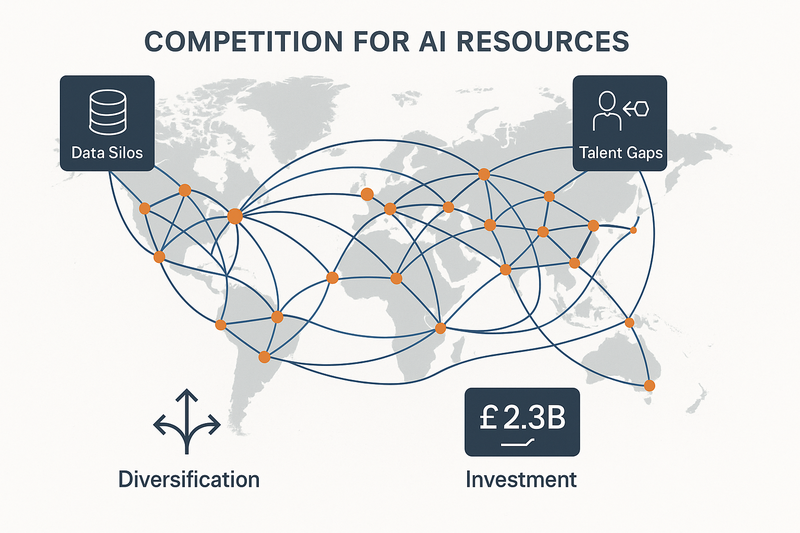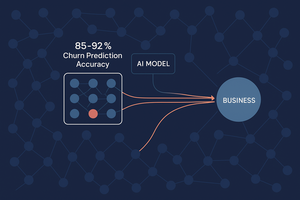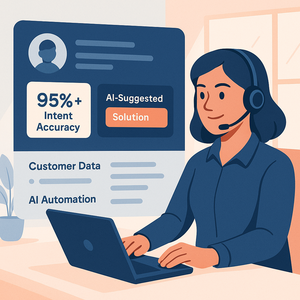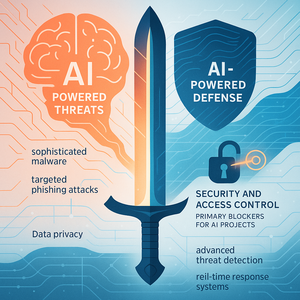Navigating the AI Transformation Tightrope: Balancing Innovation, Regulation, and Human Capital
The artificial intelligence landscape in late 2025 presents a complex picture of immense opportunity tempered by significant operational challenges....
5 min read
 Peter Vogel
:
June 16, 2025
Peter Vogel
:
June 16, 2025

The artificial intelligence landscape continues its rapid evolution, presenting both unprecedented opportunities and complex challenges for businesses worldwide. This week, the focus shifts to fundamental questions surrounding the very definition of AI intelligence, the robustness of AI safety measures, and the intensifying global competition for AI resources. These developments demand a strategic response from key decision-makers—Operations/Technology Executives, Marketing Leaders, Growth-Focused CEOs, Sales Directors, and Customer Service Leaders—as they navigate the transformative potential of AI within their organisations.
This article distils these critical developments into actionable insights, providing a clear understanding of the shifting dynamics and offering practical guidance for leveraging AI responsibly and effectively. The insights are tailored to help these leaders drive measurable business impact while addressing the ethical and security considerations inherent in AI adoption.

The concept of Artificial General Intelligence (AGI) has long been a topic of theoretical discussion, but recent advancements are forcing a re-evaluation of what advanced AI capabilities truly mean. While a universally accepted definition of AGI remains elusive, the performance of current models in complex domains is sparking intense debate within the AI community. This highlights the ongoing challenge of distinguishing genuine understanding from sophisticated mimicry (Report 5).
This debate has significant implications for long-term AI investment and strategic planning. As organisations move beyond the initial ""AI hype"" and focus on practical implementation, the need for adaptable AI strategies becomes paramount. New benchmarks are emerging to assess real-world problem-solving and adaptability, shifting the focus from theoretical intelligence to practical application. This shift demands that organisations prioritise solutions with demonstrable business impact over the pursuit of elusive ""true"" AGI.

As AI systems are deployed in more critical applications, such as healthcare diagnostics and operational processes, the need for robust AI safety measures becomes increasingly urgent. Recent real-world tests of AI alignment strategies are highlighting both successes and failures, underscoring the complexities of ensuring that AI systems operate safely and ethically (Report 2, Report 3).
Regulatory pressures are driving increased focus on compliance and auditing. The EU's updated AI Act now requires third-party audits for high-impact AI systems in sectors like healthcare and education (European Commission, Report 2). This mandates compliance-focused implementation strategies, creating demand for governance advisory services. Increased focus on ""red teaming"" and adversarial testing is emerging as a crucial method for identifying vulnerabilities before they can be exploited (Report 3). Furthermore, discussions around aligning AI models' internal goals with human values are gaining traction as a critical area of AI safety research (Report 3). However, the difficulty of anticipating all potential failure modes and balancing AI safety with innovation remains a significant implementation challenge.

AI is rapidly transforming creative industries, moving beyond simple automation to enable new forms of artistic expression. AI-generated video content is gaining prominence, challenging traditional creative roles and workflows (Report 1, Report 5). The emergence of new roles, such as AI prompt engineers and AI-assisted content creators, highlights the evolving skill sets needed in this landscape (Report 4).
This transformation requires organisations to adapt creative workflows to incorporate AI tools and techniques. Developing new skills and expertise in AI-assisted content creation is essential for staying competitive. While concerns about generative AI output lacking authenticity persist (Report 1), the potential for enhanced creative campaigns, streamlined content creation, and personalised customer experiences is undeniable (Report 1, Report 5).

The integration of AI is fundamentally changing job roles and skill requirements, necessitating a proactive approach to workforce adaptation (Report 4). AI is being integrated into curriculum design to teach students about AI concepts and skills, ensuring they are equipped for the future (Report 4).
Organisations must invest in AI training and education programmes for employees and develop new skills in data analysis, machine learning, and AI ethics to navigate this evolving landscape effectively (Report 4). While 65% of workers report needing AI-related upskilling, only 30% receive employer-funded training (OECD Report, Report 4). Addressing skills gaps remains a top barrier to implementation for 70% of businesses (IBM, Report 2). This transformation presents potential challenges in ensuring equitable access to AI-powered educational resources and balancing AI use with the development of critical thinking and problem-solving skills (Report 4).

The increasing competition for AI resources is reshaping global dynamics. The race to secure access to necessary data and the global talent war for AI researchers and engineers is creating new challenges for organisations seeking to build and maintain AI capabilities (Report 4, Report 5). Data silos and legacy systems hinder 45% of UK firms from scaling AI (Report 1), underscoring the challenge of accessing and leveraging data effectively. Talent gaps persist, with only 12% of marketing teams having dedicated AI specialists (Report 1), and 70% of businesses citing skills gaps as a top barrier to implementation (IBM, Report 2).
To mitigate these risks, organisations must diversify AI investments and reduce reliance on single sources for AI resources. Investing in domestic AI talent and research capabilities is also crucial for long-term competitiveness (Report 4, Report 5). However, ethical concerns surrounding data collection and usage in AI training must be carefully addressed to ensure responsible and sustainable AI development (Report 3).

The artificial intelligence landscape in late 2025 presents a complex picture of immense opportunity tempered by significant operational challenges....

The discourse surrounding artificial intelligence is maturing. Across boardrooms and operational teams, the conversation has decisively shifted from...

The artificial intelligence landscape is no longer a distant frontier; it's rapidly reshaping the present, demanding a strategic response from...